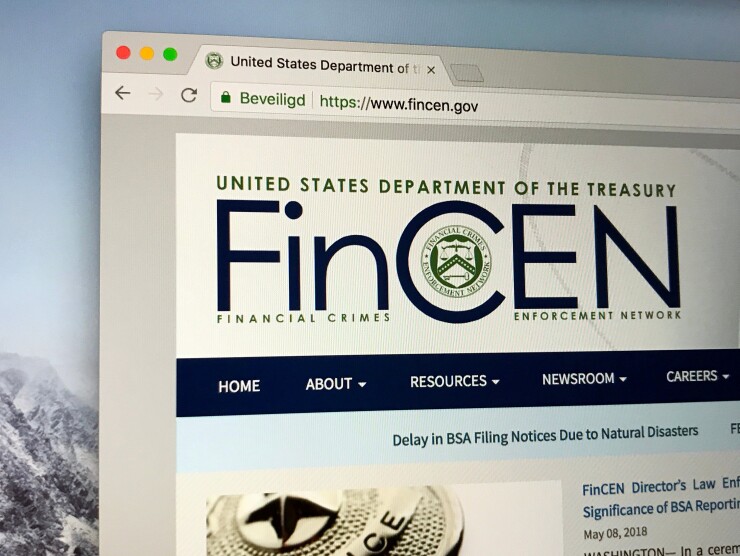The beneficial ownership information reporting saga continues.
The Treasury Department’s Financial Crimes Enforcement Network (FinCEN) said on Thursday afternoon that the March 21, 2025, BOI reporting deadline set last week is no longer in effect, and a new interim final rule to extend BOI reporting deadlines will be issued by FinCEN sometime in the coming weeks. In addition, no fines, penalties, or enforcement action will be taken by FinCEN until the interim final rule becomes effective with the new filing due date.
Here’s the latest update from FinCEN dated Feb. 27:
WASHINGTON––Today, FinCEN announced that it will not issue any fines or penalties or take any other enforcement actions against any companies based on any failure to file or update beneficial ownership information (BOI) reports pursuant to the Corporate Transparency Act by the current deadlines. No fines or penalties will be issued, and no enforcement actions will be taken, until a forthcoming interim final rule becomes effective and the new relevant due dates in the interim final rule have passed. This announcement continues Treasury’s commitment to reducing regulatory burden on businesses, as well as prioritizing under the Corporate Transparency Act reporting of BOI for those entities that pose the most significant law enforcement and national security risks.
No later than March 21, 2025, FinCEN intends to issue an interim final rule that extends BOI reporting deadlines, recognizing the need to provide new guidance and clarity as quickly as possible, while ensuring that BOI that is highly useful to important national security, intelligence, and law enforcement activities is reported.
FinCEN also intends to solicit public comment on potential revisions to existing BOI reporting requirements. FinCEN will consider those comments as part of a notice of proposed rulemaking anticipated to be issued later this year to minimize burden on small businesses while ensuring that BOI is highly useful to important national security, intelligence, and law enforcement activities, as well to determine what, if any, modifications to the deadlines referenced here should be considered.
“For now, we don’t need to worry about the March 21 deadline. This is good news, and we need to stay tuned for more from FinCEN,” Melanie Lauridsen, the AICPA’s vice president of tax policy and advocacy, said in a LinkedIn post earlier this morning.
FinCEN had set the March 21 BOI reporting deadline last week after a federal district court in Texas on Feb. 17 lifted the final nationwide injunction that had put the mandatory small business filings on hold since last December.
The U.S. Supreme Court on Jan. 23 overturned an order from a Texas federal appeals court in December in the case Texas Top Cop Shop v. Garland that had halted mandated BOI report filing. But BOI reporting remained voluntary-only until the district court reviewed the case Samantha Smith v. U.S. Department of the Treasury, which separately challenged the reporting requirements. The district court cited the Supreme Court’s January decision in its ruling in the Samantha Smith case to lift the injunction on Feb. 17.
The Corporate Transparency Act, which was signed into law in January 2021, is an anti-money laundering law that directs businesses to report their ownership structures to FinCEN, which is overseen by the Treasury Department. The thinking is that clear ownership structures make it more difficult for bad actors to use shell companies for illicit activities like money laundering or drug trafficking.
Every limited liability company, corporation, or other entity that was created by filing a document with a secretary of state or equivalent office must file a BOI report unless it qualifies for one of the Corporate Transparency Act’s exemptions. For example, the 65,000-plus members of the National Small Business Association (NSBA) are exempt because they won a previous lawsuit over the requirement.
A Jan. 1, 2025, deadline had originally been set for reporting companies to file their BOI reports with FinCEN. But FinCEN extended the reporting deadline to Jan. 13 after a federal court of appeals lifted an injunction on Dec. 23 that had halted the new law.
But a few days later, a judge reinstated the nationwide injunction, thus suspending the BOI filing deadline once again.
In early January, the Justice Department filed an emergency request with the U.S. Supreme Court asking that the BOI reporting requirements be resumed.
The following current information will have to be reported about each of the company’s beneficial owners:
- Unique number and issuing jurisdiction from a passport, driver’s license, or state ID, and an image of the document;
- Legal name;
- Birthdate; and
- Residential address.
Civil penalties for reporting violations include fines up to $591 per day for each violation. FinCEN can also charge business owners and senior officers with criminal penalties if they willfully fail to comply with the BOI reporting requirements. Criminal penalties can include up to a $10,000 fine and two years in prison.
“While we appreciate the restraint and understanding FinCEN appears to be showing about the massive burden BOI reporting poses for millions of small businesses, we urgently need Congress to intervene and pass legislation that doesn’t harm small businesses and actually fixes the problem of money-laundering; both sides of the coin on which CTA is a complete failure,” NSBA President and CEO Todd McCracken said in a statement on Feb. 28.
The House of Representatives recently passed a bipartisan bill (HR 736) to extend the BOI reporting deadline to Jan. 1, 2026; however, the Senate has yet to vote on the legislation.
Thanks for reading CPA Practice Advisor!
Subscribe Already registered? Log In
Need more information? Read the FAQs





Rick March 1 2025 at 4:43 pm
I looked at the form and it gave me a headache. What other than all my tax info could they possibly need? WTF